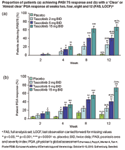- Acne
- Actinic Keratosis
- Aesthetics
- Alopecia
- Atopic Dermatitis
- Buy-and-Bill
- COVID-19
- Case-Based Roundtable
- Chronic Hand Eczema
- Chronic Spontaneous Urticaria
- Drug Watch
- Eczema
- General Dermatology
- Hidradenitis Suppurativa
- Melasma
- NP and PA
- Pediatric Dermatology
- Pigmentary Disorders
- Practice Management
- Precision Medicine and Biologics
- Prurigo Nodularis
- Psoriasis
- Psoriatic Arthritis
- Rare Disease
- Rosacea
- Skin Cancer
- Vitiligo
- Wound Care
Article
Oral Janus kinase inhibitor effective in psoriasis trial
An investigational oral Janus kinase (JAK) inhibitor (CP-690,550; Pfizer) has met its safety and efficacy endpoints in a phase 2 trial for chronic moderate to severe plaque psoriasis, says the trial's lead investigator.

Key Points

At the 12-week study's end, the proportions of patients taking the inhibitor at doses of 2 mg, 5 mg and 15 mg twice daily who achieved psoriasis area and severity index (PASI) 75 were 25 percent, 41 percent and 67 percent, respectively, versus 2 percent for placebo (p<0.001, all doses; Harness J, Papp K, Menter A, Tan H. Poster P588. European Academy of Dermatology and Venereology. October 6-10, 2010. Gothenburg, Sweden).
"From what we've seen in phase 2 studies, CP-690,550 appears to have legs. It seems to work well and consistently, and it's at least getting into the range of efficacy we see with other psoriasis therapies, including some of the biologic drugs," says Kim A. Papp, M.D., founder and president of Probity Medical Research. Overall, "We're seeing 75 percent improvement in the psoriasis area and severity index in 40 percent to 60 percent of patients. Hopefully, (CP-690,550) will demonstrate similar efficacy in the phase 3 studies." Some of the phase 3 studies had begun enrolling patients at press time.
For the phase 2b trial, investigators randomized 197 patients with chronic plaque psoriasis affecting at least 15 percent of their body surface area to undergo treatment with placebo or CP-690,550 twice daily at the doses mentioned above. Follow-up occurred at weeks two, four, eight, 12 and 16. Patients' mean baseline PSA was 21.7; three-fourths of patients completed the study.
By week four, patients taking all doses of CP-690,550 achieved significant PASI improvements, while the 5 mg and 15 mg BID doses significantly improved health-related quality of life scores at this point. At weeks four, eight and 12, the proportions of patients in the 2 mg, 5 mg and 15 mg BID groups who achieved physician global assessment (PGA) scores of clear or almost clear ranged from 19 to 30 percent, 25 to 55 percent, and 25 to 73 percent, respectively.

"At week 12, the proportion of treated patients reporting a zero or one DLQI score ranged from 30 percent to 65 percent," versus 8 to 10 percent for placebo-treated patients. "This change in the DLQI tells us that even at a modest dose of 5 mg twice daily, within 12 weeks, more than one-third of patients went from psoriasis having a huge impact on their lives to psoriasis having no impact on their lives (Mamolo C, Harness J, Stewart M, Tan H. European Academy of Dermatology and Venereology. October 6-10, 2010. Gothenburg, Sweden. Abstract P616.)."
Medical Outcomes Study Short Form-36 (SF-36) results reveal a comparable pattern of improvement, Dr. Papp says. Along with the DLQI, he says, the results mean "CP-690,550 has an impact not only on the physical manifestations of psoriasis, but it also has statistically and clinically significant impact on patients' overall quality of life."
Newsletter
Like what you’re reading? Subscribe to Dermatology Times for weekly updates on therapies, innovations, and real-world practice tips.











